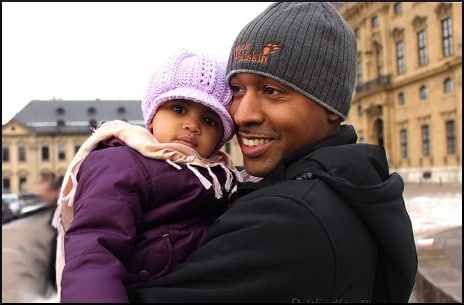
When John Lennon and Yoko Ono were anxiously trying to start a baby, legend has it that they sought a healer’s guidance, and followed a strict macrobiotic diet for months, and eventually Sean was conceived. The field of epigenetics offers an explanation for how something like that works.
As we have seen, genes are either expressed or not expressed, and something tells them to switch off or on. When our whacked-out inner chemistry messes with the genes, the DNA is disordered, and then it resembles a supervisor with no leadership skills, who can’t properly tell all our zillions of cells what to do. However, when people eat real food, and eliminate toxins and stress, less damage occurs and sometimes things happen that seem miraculous.
Science continues to learn surprising lessons about babies. Because the mechanics of gestation are so obvious and so culturally imbedded, the mother has, until recently, been assumed to be the only prenatal influence. Especially in the area of weight, mothers have taken the rap.
As it turns out, fathers are also accountable. It has been known for some time that epigenetic markers in a man’s sperm can be influenced by the amount of exercise he engages in. A couple of years back, Danish researchers discovered that obese men’s sperm cells actually look different.
Eric Boodman wrote:
Those differences might be tiny changes in molecular architecture, but they can determine how genes are switched on or off, and could potentially affect the behavior of any offspring those sperm produce.
Furthermore, it appears that a father’s life experiences can influence heritable epigenetic programming. In fact, inherited paternal epigenetics is now a field. For WhatIsEpigenetics.com, Bailey Kirkpatrick wrote:
Additional studies suggest a father’s obesity can impact his child’s likelihood for developing diseases like diabetes or experiencing abnormal metabolic regulation. They found that “paternal obesity is linked with hypomethylation at the differentially methylated regions (DMR) of the IGF2 gene.” This epigenetic modification leads to an increase in IGF2 proteins, which are, in turn, linked to obesity.
Kirkpatrick also wrote a post titled, “Overweight Fathers May Epigenetically Increase Their Daughters’ Risk of Breast Cancer.” The bottom line is, a father’s weight at the time of his daughter’s conception will affect her birth weight, and her weight as a child.
Not only that, but it seems that the father’s overweight condition somehow connects with the daughter’s breast cancer, later in life. The scientific team at the Georgetown Lombardi Comprehensive Cancer Center believes that paternal obesity also leads to other detrimental consequences for daughters.
According to current thinking, for true understanding of epigenetic influences on a child, it is necessary to consider each parent separately and also to study the interplay between them.
Your responses and feedback are welcome!
Source: “A father’s sperm could predict whether his child will be obese,” STATNews.com, 12/03/15
Source: “Dad’s Life Experiences May Epigenetically Influence His Children’s Health,” WhatIsEpigenetics.com, 05/31/16
Source: “Overweight Fathers May Epigenetically Increase Their Daughters’ Risk of Breast Cancer,” WhatIsEpigenetics.com, 07/05/16
Photo credit: Donald Windley via Visualhunt/CC BY-SA

 FAQs and Media Requests:
FAQs and Media Requests: 











